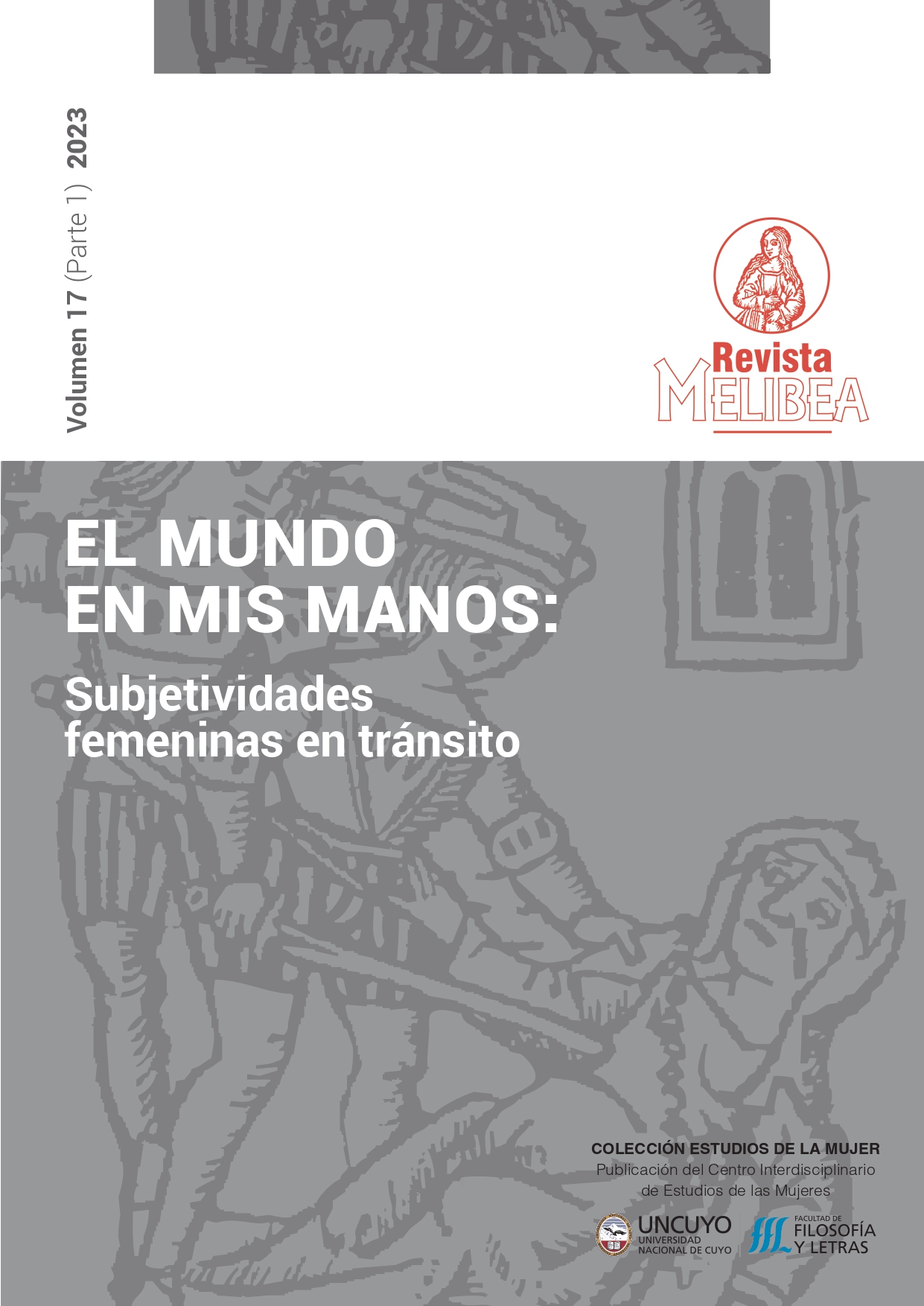La otra mirada
El espacio y el “otro” en los relatos de viaje de dos escritoras argentinas
Palabras clave:
Viaje, Subjetividad femenina, Agencia, Género, Público/privadoResumen
El trabajo de investigación aborda textos que relatan el viaje a los Esta- dos Unidos de Norteamérica de dos escritoras argentinas de mediados del siglo XIX, Eduarda Mansilla y Juana Manso. Ambas escritoras sostienen en sus relatos repre- sentaciones de un espacio y de un “otro” “yankee” que permite ubicar sus relatos dentro de la literatura de viajes de mujeres decimonónicas. Quizás estas dos carac- terísticas de sus escritos, el género de viaje y la autoría femenina, sean las causas de que sus obras no ocuparan el centro del campo cultura (en términos de Bourdieu) al momento de su publicación.
Se han seleccionado para el análisis Recuerdos de viaje de Mansilla (1882) y algunos episodios de Viajes a los Estados Unidos de Juana Manso publicados en forma de epi- sodios en La ilustración argentina y Álbum de Señoritas (1854). Se pone el acento en dos características de sus obras: el espacio y el “otro” como elementos que funda- mentan la inclusión de sus relatos en la literatura hodopórica. Así mismo, permite visibilizar la lucha de las autoras por cruzar la frontera que separa el espacio público del privado que en el siglo XIX limita la agencia de las mujeres al espacio doméstico o familiar (privado). Ambos marcos de referencia nos permiten analizar cómo las escritoras construyen sus relatos y su subjetividad; y explicar las posibles razones de su exclusión de los cánones literarios de su tiempo para ser recuperadas con pos- teridad.
Citas
AHMED, S. (2015), La política cultural de las emociones. México. PUEG.
BOROVSKY, L. (2019), Mujeres viajeras. CABA. Adriana Hidalgo.
COLOMBI, B. (2006), El viaje y su relato. http://www.redalyc.org/articulo.oa?id=64004302.
COLOMBI, B. (2010), “El viaje. De la práctica al género”, MARINONE, M. y TIMEO. G. (eds.), Viaje y relato en Latinoamérica, Buenos Aires, Katatay.
COROMINA, I.S. (2008), “El álbum de señoritas y la emancipación de la mujer”, Dialogía: re- vista de lingüística, literatura y cultura, 3, 169-186. https://dialnet.unirioja.es/servlet/ autor?codigo=2449095.
EMA LÓPEZ, J. E. (2004), “Del sujeto a la agencia (a través de lo político)”, Athenea Digital, 5.
http://antalya.uab.es/athenea/num5/ema.pdf
FEMENINAS, M. L. y SPADAROS, l. (2013), “Subvirtiendo las estructuras de los saberes: Algunas reconsideraciones sobre sus presupuestos”, Labrus. Étudesféministes.
FOUCAULT, M. (1997), Historia de la sexualidad. La voluntad de saber, México, Siglo XXI.
GNISCI, A. (2002), Introducción de la literatura comparada, Barcelona, Critica.
KIRKPATRICK, S. (2004), Mujer, modernismo y vanguardias en España (1898-1931), Madrid, Cá- tedra.
LABANYIL, J. (2011), Género y modernización en la novela realista española, Madrid, Cátedra.
MACON, C. (2020), “Rebeliones feministas contra la configuración afectiva patriarcal. Un re- lato posible para la agencia”, Heterotopías, 3(5), 1-19. Https://revistas.unc.edu.ar/ index.php/heterotopias/article/view/29038.
MANSILLA DE GARCÍA, E. (2011), Recuerdos de viaje, Córdoba, Buena Vista.
MANSO, J. (2019), “Juana Manso. De los Estados Unidos a Cuba.”, BOROVSKY, L. (ed.), Mujeres viajeras. Política, derechos y aventuras desde miradas pioneras 1864-1920, Buenos Aires, Adriana Hidalgo, 63-89.
SOSA, C.H. (2005), “En los umbrales del texto: prólogos y legitimaciones, dedicatorias y com- plicidades (notas sobre el uso del paratexto en algunas escritoras argentinas del siglo XIX)”, Verba hispanica: anuario del Departamento de la Lengua y Literatura Es- pañolas de la Facultad de Filosofía y Letras de la Universidad de Ljubljana, 13, 59-68. Https://dialnet.unirioja.es/servlet/articulo?codigo=1410617.
ZAVALA, I. (coord.) (1998), Breve historia feminista de la literatura española (en lengua castella- na), vol. IV y V, Barcelona, Anthropos.
Descargas
Publicado
Cómo citar
Número
Sección
Licencia

Esta obra está bajo una licencia internacional Creative Commons Atribución-NoComercial 4.0.
Esta obra está bajo una Licencia Creative Commons Atribución-NoComercial 4.0 Internacional.
Los/as autores/as que publican en esta revista están de acuerdo con los siguientes términos:
1. Los/as autores conservan los derechos de autor y garantizan a la revista el derecho de ser la primera publicaci´´ón del trabajo bajo una licencia Creative Commons Atribución-NoComercial 4.0 Internacional. Por esto pueden compartir el trabajo con la referencia explícita de la publicación original en esta revista.
2. Revista Melibea permite y anima a los autores a difundir la publicación realizada electrónicamente, a través de su enlace y/o de la versión postprint del archivo descargado de forma independiente.
















